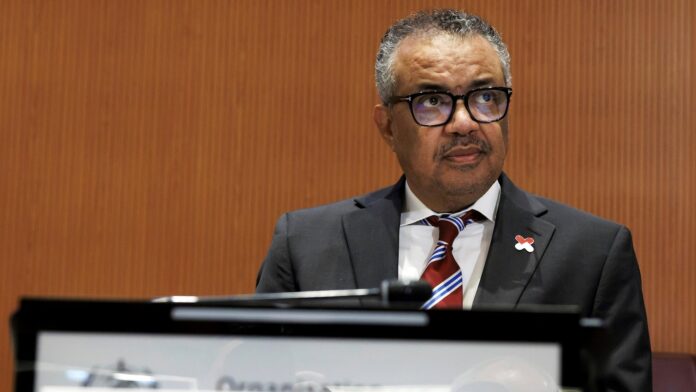GENEVA — The World Health Organization will begin its annual meeting with ministers and other top envoys on Monday in hopes of strengthening global preparedness for the next pandemic in the devastating aftermath of COVID-19.
But the most ambitious project, the adoption of a pandemic ‘treaty’, has been put on hold for the time being after two and a half years of work failed to produce a draft that countries could get behind on Friday, as originally hoped.
WHO Director-General Tedros Adhanom Ghebreyesus insists it is not a “failure” and that the World Health Assembly can still chart the way forward this week.
As diplomats, health officials and activists were still trying to put together a draft treaty, he predicted the meeting could be one of the most important in the WHO’s 76-year history. Not anymore.
WHO officials and others have been eager to build on the momentum of concern about the coronavirus pandemic, with the risk that the more it fades into history, the less the public — and policymakers — will be interested in preparing for a future pandemic .
The premise is that pathogens that do not respect national borders require a joint response from all countries. But decision makers are struggling to balance the national interest with WHO officials’ calls to think more broadly in the interests of humanity and equality.
So health ministers will now have to pick up the pieces and try to bridge deep-rooted differences, including how the world can share information about emerging pathogens and scarce resources such as vaccines and masks when demand skyrockets.
The meeting of the 194 member states of the U.N. health agency begins Monday with speeches by Tedros and video commentary by high-profile participants, including International Olympic Committee President Thomas Bach and European Commission President Ursula von der Leyen.
Envoys will discuss global health issues, including the impact of wars in countries such as the Middle East, Sudan and Ukraine.
Instead of a pandemic treaty, the best chance now to expand the international health architecture to combat such cross-border outbreaks is to make changes to the nearly two-decade-old International Health Rules, which countries have agreed to “in principle,” says Tedros. said last week.
These regulations aim to help countries detect and respond to health emergencies.
For example, envoys to the meeting could establish the concept of a “pandemic emergency” to build on the cumbersome category of a public health emergency of international concern, which is currently the WHO’s highest alert level for dangerous epidemics.
Such a term could help inform the public at a time when, as with COVID-19, confusion and uncertainty are widespread.



